Our Speakers
Dan Aubin
Balancing the shifts: The acrobatics of being change-ready
Change isn’t something we master—it’s something we are always balancing.
In an era where life and work shift faster than ever, we often hear we need to “find balance.” But the research tells us that balance isn’t something we achieve—it’s something we engage with.
This talk introduces a transformative shift: what if, instead of fearing change, we re-trained ourselves to engage with shifts like an acrobat—adjusting in real time?
Through live physical demonstrations, compelling storytelling, and practical insights, this TEDx talk will challenge conventional ideas of stability and show how adaptability is the real key to resilience.
It’s time to stop chasing balance—and instead become good at balancing.
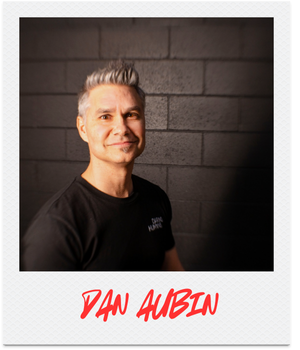
Dan Aubin
Balancing the shifts: The acrobatics of being change-ready
Change isn’t something we master—it’s something we are always balancing.
In an era where life and work shift faster than ever, we often hear we need to “find balance.” But the research tells us that balance isn’t something we achieve—it’s something we engage with.
This talk introduces a transformative shift: what if, instead of fearing change, we re-trained ourselves to engage with shifts like an acrobat—adjusting in real time?
Through live physical demonstrations, compelling storytelling, and practical insights, this TEDx talk will challenge conventional ideas of stability and show how adaptability is the real key to resilience.
It’s time to stop chasing balance—and instead become good at balancing.
Elliott Lea
Unlocking Leadership in Our Youth
Us kids are more capable than you might think. We want more independence and welcome more life experiences. I believe these two things strengthen self-worth, confidence and encourage resilience. All qualities that will grow more leaders among our youth.
I have spent a lot of time considering how I can solve the worlds current leadership challenges by inspiring a future generation of confident leaders. I don’t believe all leaders are born, instead they are made, one experience at a time and I do believe that opportunities to lead start much earlier than most realise.
When we believe in ourselves and our abilities and confidently share our experiences with others from a young age we not only grow, but we also enhance our abilities to lead more powerfully. I hope to motivate parents to involve and trust their kids in their homes and share a variety of their experiences from the very beginning, as I believe our caregivers are our strongest leadership influence and home is our best training ground.
I want to share my experiences from my journey into leadership and discuss the impact that allowing kids agency, from the youngest age, is the first pillar to building a generation full of future leaders.

Elliott Lea
Unlocking Leadership in Our Youth
Us kids are more capable than you might think. We want more independence and welcome more life experiences. I believe these two things strengthen self-worth, confidence and encourage resilience. All qualities that will grow more leaders among our youth.
I have spent a lot of time considering how I can solve the worlds current leadership challenges by inspiring a future generation of confident leaders. I don’t believe all leaders are born, instead they are made, one experience at a time and I do believe that opportunities to lead start much earlier than most realise.
When we believe in ourselves and our abilities and confidently share our experiences with others from a young age we not only grow, but we also enhance our abilities to lead more powerfully. I hope to motivate parents to involve and trust their kids in their homes and share a variety of their experiences from the very beginning, as I believe our caregivers are our strongest leadership influence and home is our best training ground.
I want to share my experiences from my journey into leadership and discuss the impact that allowing kids agency, from the youngest age, is the first pillar to building a generation full of future leaders.
Sara Boksmati
The Conditional Cure: Could Science Take a Backseat to Society?
Scientists have been searching for a cure for the infamous type 1 diabetes for centuries; and sufferers of the disease have been clutching onto hope that one day their sleepless nights and regimented daily schedules will be a distant memory. The Junior Diabetes Research Foundation have a goal to cure the disease by “restoring the body’s ability to regulate glucose or preventing the initial immune attack”.
The power of knowledge and understanding can amalgamate to a catalytic change in the accommodation of chronic illness sufferers by society; much like pre-existing algorithms that so seamlessly accommodate the needs of people who outwardly experience physical disability.
I believe that a type 1 diabetes free future can be reached by creating a society that is so facilitating, that type 1 diabetics no longer feel the distinction between the extra daily steps they take to survive, compared to those with fully functioning bodies; reaching such a social standard can therefore apply to other physical disabilities that are currently unaccommodated for.
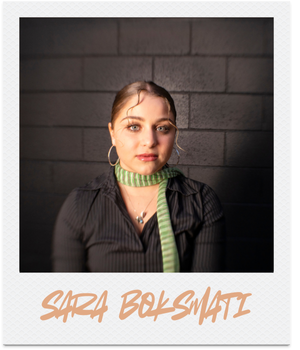
Sara Boksmati
The Conditional Cure: Could Science Take a Backseat to Society?
Scientists have been searching for a cure for the infamous type 1 diabetes for centuries; and sufferers of the disease have been clutching onto hope that one day their sleepless nights and regimented daily schedules will be a distant memory. The Junior Diabetes Research Foundation have a goal to cure the disease by “restoring the body’s ability to regulate glucose or preventing the initial immune attack”.
The power of knowledge and understanding can amalgamate to a catalytic change in the accommodation of chronic illness sufferers by society; much like pre-existing algorithms that so seamlessly accommodate the needs of people who outwardly experience physical disability.
I believe that a type 1 diabetes free future can be reached by creating a society that is so facilitating, that type 1 diabetics no longer feel the distinction between the extra daily steps they take to survive, compared to those with fully functioning bodies; reaching such a social standard can therefore apply to other physical disabilities that are currently unaccommodated for.
Erin Faehrmann
Permission to Play
We adults need to make a shift in how we think about play. Far from just the work of children, there’s a growing body of evidence and practitioners around the globe that have shown us how play can be the key that unlocks a better world for us all.
Just look at the amazing outcomes from The Pinnaroo Project arts + health initiative that shifted the health and wellbeing of the Pinnaroo Community. Or the thousands of people around the world that Climate Play reaches with Lego Serious Play to shift climate activism conversations. I’ll share case studies like these along with published research and an invitation to practice some play through a quick inclusive audience participation game.
This talk is a Permission Slip, an invitation and a call to action for more adults to incorporate more play in to solving the most complex challenges of our time. I sure hope you accept the invitation to play.
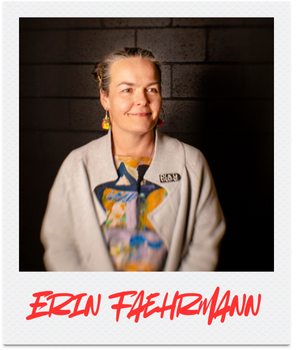
Erin Faehrmann
Permission to Play
We adults need to make a shift in how we think about play. Far from just the work of children, there’s a growing body of evidence and practitioners around the globe that have shown us how play can be the key that unlocks a better world for us all.
Just look at the amazing outcomes from The Pinnaroo Project arts + health initiative that shifted the health and wellbeing of the Pinnaroo Community. Or the thousands of people around the world that Climate Play reaches with Lego Serious Play to shift climate activism conversations. I’ll share case studies like these along with published research and an invitation to practice some play through a quick inclusive audience participation game.
This talk is a Permission Slip, an invitation and a call to action for more adults to incorporate more play in to solving the most complex challenges of our time. I sure hope you accept the invitation to play!
Suzanne Fuzzard
From little things big things grow
Suicide rates and levels of psychological distress for young people have continued to increase in Australia. Young people are developmentally known to take risks. When you add to this, declining mental health it is evident that the stakes can be high when help-seeking occurs. Currently our mental health system is described as overwhelmed and at worst, ineffective, broken.
What if we could reimagine and enhance how we used precious health resources to provide no more, no less than was needed for that individual and that they were in the driver’s seat in determining this. What if timeliness in receiving service were privileged in system design?
What if clients got therapy first and assessment as required. Single session therapy, used within a walk-in model embraces the thinking that NOW is the best time to act. This asks us to believe in harnessing peoples own skills and resources. Milton Erikson said, “if you want a big change, ask for a smaller one.”
We need a shift in mindset and actions in order to reenvisage a new system of care.
From little things big things grow……….
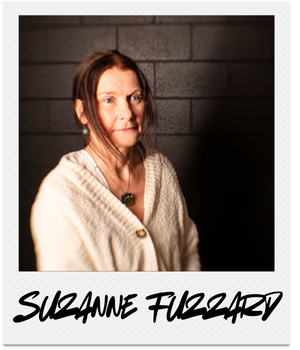
Suzanne Fuzzard
From little things big things grow
Suicide rates and levels of psychological distress for young people have continued to increase in Australia. Young people are developmentally known to take risks. When you add to this, declining mental health it is evident that the stakes can be high when help-seeking occurs. Currently our mental health system is described as overwhelmed and at worst, ineffective, broken.
What if we could reimagine and enhance how we used precious health resources to provide no more, no less than was needed for that individual and that they were in the driver’s seat in determining this. What if timeliness in receiving service were privileged in system design?
What if clients got therapy first and assessment as required. Single session therapy, used within a walk-in model embraces the thinking that NOW is the best time to act. This asks us to believe in harnessing peoples own skills and resources. Milton Erikson said, “if you want a big change, ask for a smaller one.”
We need a shift in mindset and actions in order to reenvisage a new system of care.
From little things big things grow……….
Dr Nikou Javadi
How One Second of Pause Can Change Everything
Meet Dr. Nikou Javadi. She holds dual PhDs in Architecture and Healthcare service and Experience Design, and her career spans architecture, research, nursing, and consulting. Inspired by a real-life emergency where clarity and teamwork saved a young boy’s life, Nikou reveals a universal truth: rushing to fix problems often leads to costly mistakes.
By pausing to ask better questions, we can unlock smarter solutions — in healthcare, business, and beyond. Recognised with multiple awards for her research and innovation, Nikou now shares why pausing to think differently is the key to turning complexity into clarity.
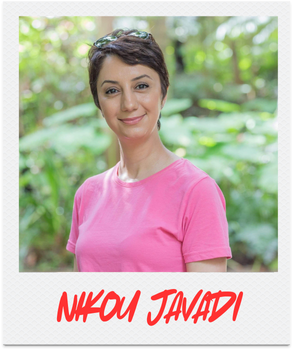
Dr Nikou Javadi
How One Second of Pause Can Change Everything
Meet Dr. Nikou Javadi. She holds dual PhDs in Architecture and Healthcare service and Experience Design, and her career spans architecture, research, nursing, and consulting. Inspired by a real-life emergency where clarity and teamwork saved a young boy’s life, Nikou reveals a universal truth: rushing to fix problems often leads to costly mistakes.
By pausing to ask better questions, we can unlock smarter solutions — in healthcare, business, and beyond. Recognised with multiple awards for her research and innovation, Nikou now shares why pausing to think differently is the key to turning complexity into clarity.
Jasmin Ilic
The Biggest Cyber Threat? The Way We Talk About It
With cybercrime draining over $30 billion from Australians annually, why do attacks keep rising despite endless warnings? The answer lies not in our technology, but in our communication.
Decades of fear-based cybersecurity messaging have failed because neuroscience shows fear doesn’t change behavior, it shuts people down. This talk offers a revolutionary shift: from panic to possibility, from exclusionary jargon to inclusive language, revealing how changing the narrative could be our most powerful defence.
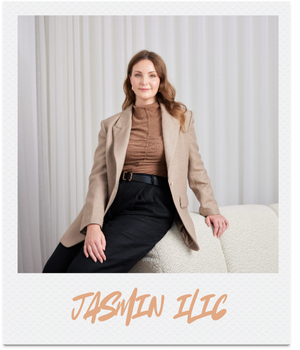
Jasmin Ilic
The Biggest Cyber Threat? The Way We Talk About It
With cybercrime draining over $30 billion from Australians annually, why do attacks keep rising despite endless warnings? The answer lies not in our technology, but in our communication.
Decades of fear-based cybersecurity messaging have failed because neuroscience shows fear doesn’t change behavior, it shuts people down. This talk offers a revolutionary shift: from panic to possibility, from exclusionary jargon to inclusive language, revealing how changing the narrative could be our most powerful defence.
Megan Caldersmith
Recycled Runway
What if fashion waste wasn’t waste at all, but opportunity waiting to be unlocked? Each year, 70 creatives accept the challenge to transform 5 pre-loved garments into stunning catwalk pieces in just 8 weeks.
This innovative event saves 350 garments per year from landfill while proving that creativity thrives within constraints. But the real transformation isn’t just in the garments, it’s in mindsets. This talk reveals how combining creativity with consciousness can shift entire communities toward conscious consumption, showing us that when we transform waste into wonder, we don’t just save clothes, we plant seeds of change that could help save our planet’s future.
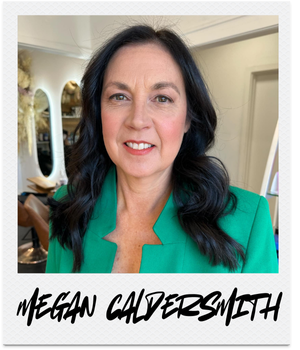
Megan Caldersmith
Recycled Runway
What if fashion waste wasn’t waste at all, but opportunity waiting to be unlocked? Each year, 70 creatives accept the challenge to transform 5 pre-loved garments into stunning catwalk pieces in just 8 weeks.
This innovative event saves 350 garments per year from landfill while proving that creativity thrives within constraints. But the real transformation isn’t just in the garments, it’s in mindsets. This talk reveals how combining creativity with consciousness can shift entire communities toward conscious consumption, showing us that when we transform waste into wonder, we don’t just save clothes, we plant seeds of change that could help save our planet’s future.
Anushka Phal
Wounds We Carry: Understanding Intergenerational Trauma in Migrant Communities
What if the struggles we face today are echoes of the past? Psychologist and educator Anushka explores how intergenerational trauma in migrant communities, shaped by displacement, survival, and cultural conflict, affects mental health across generations.
Through powerful storytelling and psychological insight, this talk reveals how inherited pain can become inherited resilience, offering a path from silent suffering to healing and open conversations.

Anushka Phal
Wounds We Carry: Understanding Intergenerational Trauma in Migrant Communities
What if the struggles we face today are echoes of the past? Psychologist and educator Anushka explores how intergenerational trauma in migrant communities, shaped by displacement, survival, and cultural conflict, affects mental health across generations.
Through powerful storytelling and psychological insight, this talk reveals how inherited pain can become inherited resilience, offering a path from silent suffering to healing and open conversations.
Daniel Lloyd
Adversity Intelligence: The Recovery Method They Don’t Teach in Rehab
What if the key to recovery isn’t avoiding pain, but learning to harness it? Drawing on his own journey from addiction to recovery coach, Daniel Lloyd introduces the concept of Adversity Intelligence (AQ) – our ability to turn suffering into growth.
Through his pioneering outreach work and coaching practice, Daniel reveals why conventional treatments often fall short, and how embracing adversity can unlock resilience, purpose, and lasting transformation.
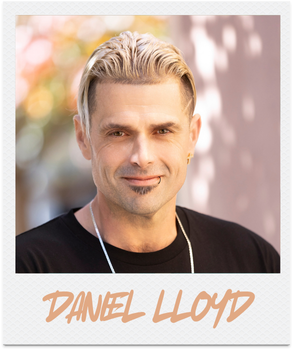
Daniel Lloyd
Adversity Intelligence: The Recovery Method They Don’t Teach in Rehab
What if the key to recovery isn’t avoiding pain, but learning to harness it? Drawing on his own journey from addiction to recovery coach, Daniel Lloyd introduces the concept of Adversity Intelligence (AQ) – our ability to turn suffering into growth.
Through his pioneering outreach work and coaching practice, Daniel reveals why conventional treatments often fall short, and how embracing adversity can unlock resilience, purpose, and lasting transformation.
Ali Ahmadi
Gratitude, Purpose and Self-Confidence
Meet Ali Ahmadi, a refugee-turned-engineering leader, whose life story is one of extraordinary courage and resilience.
Ali shares the framework that grew from his lived experience — a GPS for navigating life’s toughest challenges.
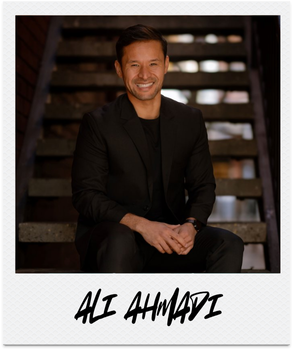
Ali Ahmadi
Gratitude, Purpose and Self-Confidence
Meet Ali Ahmadi, a refugee-turned-engineering leader, whose life story is one of extraordinary courage and resilience.
Ali shares the framework that grew from his lived experience — a GPS for navigating life’s toughest challenges.
Dr Sam Darvishi
Neurotechnology, Rehabilitation, Innovation
Meet Dr. Sam Darvishi, a researcher and innovator who has spent more than a decade pushing the boundaries of neuro-rehabilitation. We can’t wait to hear about the remarkable journey and thought behind bringing a vision to life, impacting stroke survivors worldwide.
Sam’s work bridges science, compassion, and innovation, offering hope and inspiring the next generation.
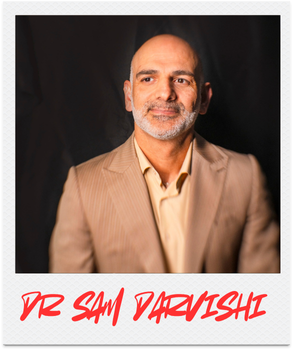
Dr Sam Darvishi
Neurotechnology, Rehabilitation, Innovation
Meet Dr. Sam Darvishi, a researcher and innovator who has spent more than a decade pushing the boundaries of neuro-rehabilitation. We can’t wait to hear about the remarkable journey and thought behind bringing a vision to life, impacting stroke survivors worldwide.
Sam’s work bridges science, compassion, and innovation, offering hope and inspiring the next generation.
Tickets now on Sale!
Limited availability. Grab your tickets today!
